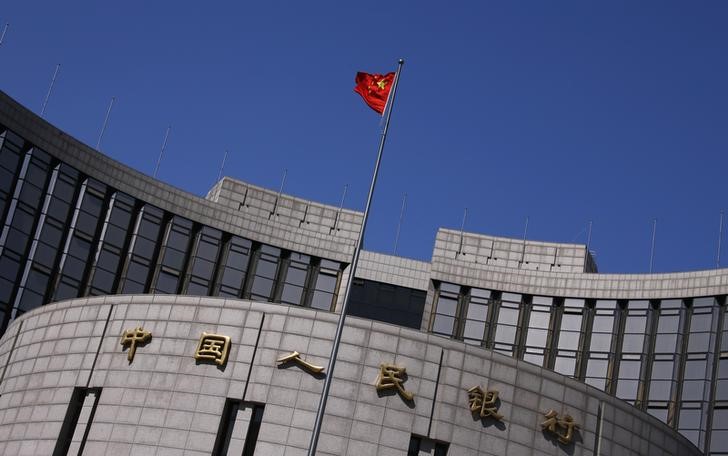SHANGHAI (Reuters) - China's central bank has suspended at least three foreign banks from conducting some foreign exchange business until the end of March, three sources who had seen the suspension notices told Reuters on Wednesday.
Included among the suspended services are liquidation of spot positions for clients and some other activities related to cross-border, onshore and offshore businesses, the sources said.
The sources, speaking on condition that the banks were not named, said the notices sent to the affected foreign banks by the People's Bank of China (PBOC) gave no reason for the suspension.
The PBOC did not immediately respond to a request for comment.
The measure follows a slew of steps taken by the Chinese government to keep the yuan stable since it devalued the currency in August.
The spread between the onshore and offshore markets for the yuan, or renminbi, has been growing since the devaluation, making it increasingly difficult for the central bank to manage its currency and stem an outflow of capital from an economy that is facing its slowest growth in 25 years.
The sources told Reuters that authorities had warned the banks that if they engaged in lucrative carry trade, taking advantage of the different exchange rates, the central bank would move to further block arbitrage channels.
"This is part of the PBOC's expedient means to stabilize the yuan's exchange rate," said an executive at a foreign bank contacted separately.
The sources said the banks might have been targeted due to the large scale of their cross-border forex businesses.
An economist at a top government think-tank said the measure was a temporary bid to curb demand for dollars that has been strengthening toward the end of the year as the gap between the onshore and offshore yuan exchange rates widens.
"They hope to ease foreign exchange buying pressure and ease depreciation pressure on the yuan," said the economist who declined to be identified by name. "But I don't think the authorities will take very strong capital control measures, they are likely to reinforce the existing measures."
The move could also ease pressure on the PBOC for direct intervention in offshore markets to support the yuan, which has contributed to a fall of more than $400 billion in China's foreign exchange reserves this year.
UNDER SCRUTINY
In common with forex markets worldwide, there are no official data on which banks are the most active in trading foreign exchange in China.
A 2015 Asiamoney survey asking market participants which brokers they used named Deutsche Bank (DE:DBKGn) as the top foreign forex provider in China, followed by Australia and New Zealand Banking Group, HSBC, Citigroup (N:C) and BNP Paribas (PA:BNPP).
Asked if they had received the central bank's suspension notice, Citi, Deutsche Bank, HSBC and BNP Paribas declined to comment. There was no immediate response from ANZ.
Standard Chartered (L:STAN) and DBS, which also conduct trading in foreign exchange in China, did not respond to requests for comment.
The latest move comes just three months since the PBOC ordered banks to closely scrutinize clients' foreign exchange transactions to prevent illicit cross-border currency arbitrage between the offshore and onshore yuan.
On Wednesday, the country's foreign exchange regulator also said it would improve its reserve position and contingency plans to curb risks from abnormal cross-border capital flows.
The yuan has come under renewed pressure since late November amid speculation that Beijing would permit more depreciation after the International Monetary Fund announced the currency's admission into the fund's basket of reserve currencies.
The onshore yuan traded in Shanghai has lost 1.44 percent of its value since the end of November, and has repeatedly hit 4-1/2 year lows.

The offshore market has traced a similar pattern. The Hong Kong-traded offshore yuan hit an intraday low of 6.5965 on Wednesday morning, its weakest since late September 2011.